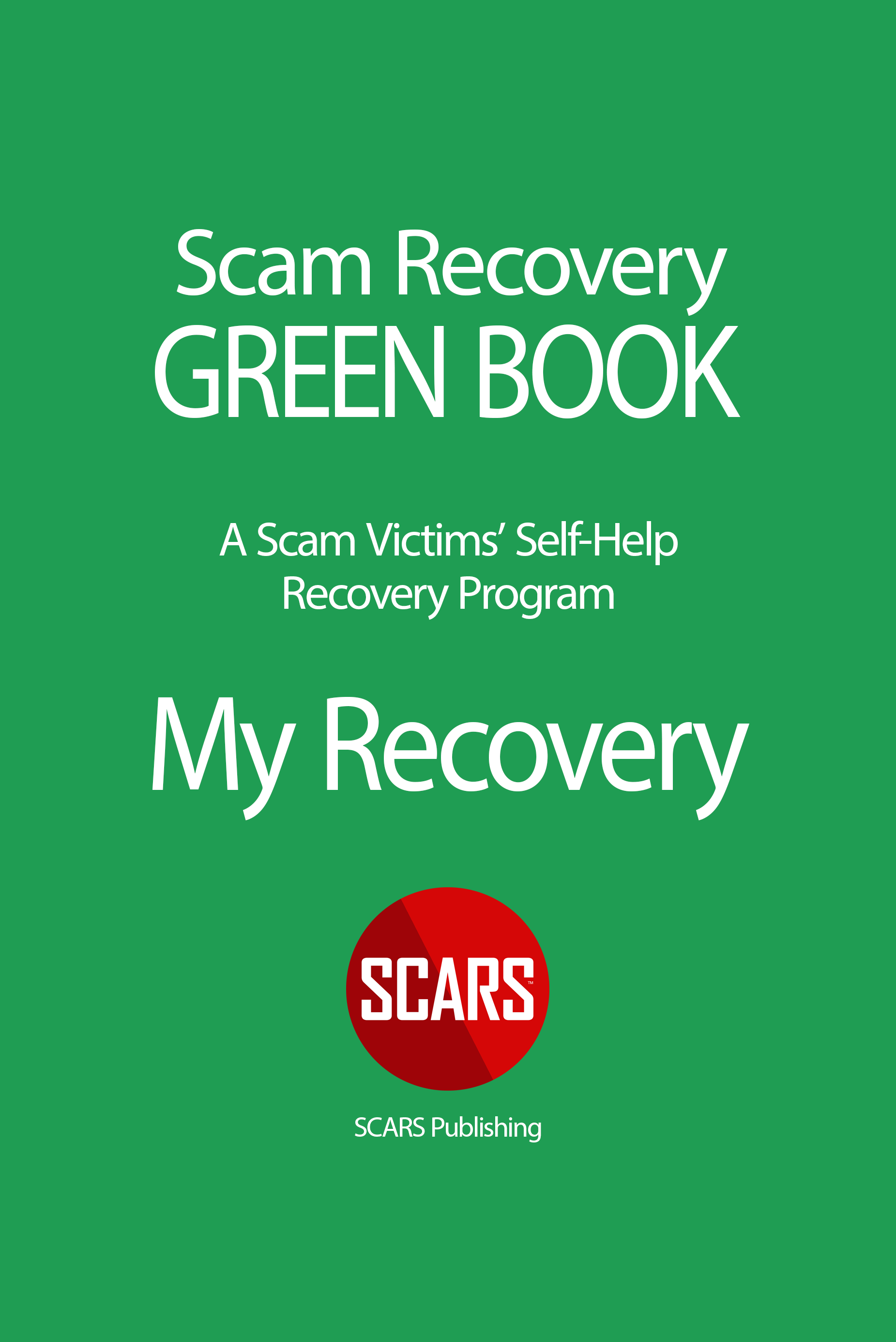Authors:
• Vianey Gonzalez B.Sc(Psych) – Psychologist, Certified Deception Professional, Psychology Advisory Panel & Director of the Society of Citizens Against Relationship Scams Inc.
• Tim McGuinness, Ph.D. – Anthropologist, Scientist, Director of the Society of Citizens Against Relationship Scams Inc.
• Based on research from multiple sources
Article Abstract
Successful deception hinges on several fundamental principles that exploit psychological vulnerabilities, crafting a false reality regardless of the scam type. Understanding human psychology is paramount, leveraging cognitive biases, emotional triggers, and social dynamics to manipulate perceptions and behaviors.
Building trust and rapport lays the groundwork while creating convincing narratives, maintaining consistency, and exploiting emotional triggers to deepen the deception. Managing perception and reality, creating plausible deniability, and adapting to situational dynamics are crucial tactics, all while mitigating risk and maintaining control.
Recognizing these principles sheds light on the art of deception, revealing the intricate web woven by scammers to manipulate victims for personal gain. Awareness of cognitive biases is essential, as scammers exploit flaws and incredibility in narratives to trigger biases and perpetuate the illusion of genuine connection. Through emotional manipulation and psychological exploitation, scammers maintain control, emphasizing the importance of vigilance and awareness to protect against such deceitful tactics.

The Art Of Deception: The Fundamental Principals Of Successful Deceptions, Regardless of the Type of Scam
Successful deceptions rely on several fundamental principles that exploit psychological vulnerabilities and manipulate perceptions to create a false reality.
These principles of deception are essential for deceivers (scammers, fraudsters, con men/women) to effectively conceal their true intentions and manipulate others for personal gain or advantage.
What is especially interesting is how constant these have been for thousands of years!
Fundamental Principles of Successful Deceptions
Here are the fundamental principles of successful deceptions:
- Understanding Human Psychology: Deceivers must have a deep understanding of human psychology, including cognitive biases, emotional triggers, and social dynamics. By exploiting psychological vulnerabilities and biases, deceivers can manipulate perceptions, emotions, and behaviors to achieve their objectives.
- Building Trust and Rapport: Trust is essential for successful deception. Deceivers often invest time and effort into building rapport with their targets, using charm, flattery, triggering cognitive biases, emotional (amygdala) hijacks, and empathy to establish a sense of trust and connection. Building trust creates a psychological barrier that makes it easier to manipulate the target and conceal deceitful intentions.
- Creating a Convincing Narrative: Deceivers craft elaborate and convincing narratives that align with their objectives and appeal to the target’s emotions, beliefs, and desires. A convincing narrative includes details, consistency, and emotional resonance that make it compelling and difficult to question. But the curious thing is the narratives do not have to be bulletproof – in fact, too much fact spoils the deception.
- Maintaining Consistency and Authenticity: Consistency is key to maintaining the illusion of authenticity. Deceivers must ensure that their words, actions, and behaviors align with the narrative they have constructed, minimizing inconsistencies or contradictions that could raise suspicion. When consistency falters, victims can break free of the deception and see it for what it is.
- Exploiting Emotional Triggers: Emotions play a powerful role in deception. Deceivers manipulate emotions such as fear, greed, sympathy, and desire to influence the target’s perceptions and decisions using techniques such as amygdala hijacks, love bombing, and many others, including, again, cognitive biases. By exploiting emotional triggers, deceivers can elicit desired responses and manipulate behavior.
- Managing Perception and Reality: Deceivers manipulate the target’s perception of reality by controlling information, framing narratives, and shaping interpretations. Perception management involves selectively presenting information, distorting facts, and creating illusions that support the deception while concealing contradictory evidence. Gaslighting is a perfect example of that.
- Creating Plausible Deniability: Successful deceivers create layers of plausible deniability to deflect suspicion and evade detection. Plausible deniability involves creating alternative explanations, deflecting blame, or framing events in ways that make it difficult to prove wrongdoing.
- Adapting to Situational Dynamics: Deceivers must adapt their tactics and strategies to the evolving dynamics of the situation or relationship. Flexibility and adaptability are essential for responding to unexpected challenges, overcoming obstacles, and maintaining control over the deception.
- Managing Risk and Exposure: Deception carries inherent risks, including detection, exposure, and consequences. Successful deceivers mitigate risk by carefully managing their actions, minimizing evidence, and avoiding situations that increase the likelihood of detection.
- Maintaining Control and Power: Deception is ultimately about exerting control and power over others. Successful deceivers maintain control by manipulating perceptions, influencing decisions, and exploiting vulnerabilities to achieve their objectives.
By mastering these fundamental principles, deceivers can effectively conceal their true intentions, manipulate perceptions, and achieve their objectives through deception. However, it is essential to recognize that deception can have harmful consequences and undermine trust and relationships. Therefore, ethical considerations and moral values should guide behavior and decision-making to ensure that deception is used responsibly and ethically.
Cognitive Biases – Every Person’s Greatest Vulnerability
The impact of cognitive biases is often underestimated or overlooked by the general public for several reasons:
- Lack of Awareness: Many people are simply unaware of the existence and influence of cognitive biases. These biases operate at a subconscious level, shaping perceptions, judgments, and decisions without individuals being consciously aware of them. Without knowledge of cognitive biases, people attribute their behavior to rationality or logic rather than recognizing the underlying biases at play.
- Complexity of Human Behavior: Human behavior is complex and influenced by multiple factors, including cognitive, emotional, social, and situational variables. Cognitive biases represent just one aspect of this complexity, making it challenging for individuals to fully grasp their significance and impact on decision-making processes.
- Overconfidence in Rationality: There is a prevailing belief that humans are rational beings who make decisions based on careful analysis and logical reasoning. This belief in rationality may lead people to overlook the role of cognitive biases in shaping decision-making processes, as it contradicts the notion of rationality and conscious control. This is actually a cognitive bias called ‘illusion of control.’
- Confirmation Bias: The tendency to seek out information that confirms preexisting beliefs or opinions, known as confirmation bias, can prevent individuals from recognizing the influence of cognitive biases. People may selectively attend to information that supports their existing worldview while ignoring or dismissing evidence that challenges it, reinforcing their biases and preventing them from acknowledging their impact.
- Limited Understanding of Psychology: Psychology, particularly the field of cognitive psychology, is a complex and specialized discipline that may not be well understood by the general public. Without a basic understanding of psychological principles and concepts, people may struggle to comprehend the nuances of cognitive biases and their implications for decision-making.
- Cultural and Social Factors: Cultural norms, social influences, and societal expectations can shape how individuals perceive and interpret information. In some cultures or social contexts, there may be a stigma associated with acknowledging cognitive biases or discussing psychological phenomena openly, leading to a reluctance to explore these topics.
- Resistance to Change: Recognizing and addressing cognitive biases often requires individuals to challenge their deeply ingrained beliefs, habits, and thought patterns. This process can be uncomfortable and unsettling, leading to resistance or denial of the existence of cognitive biases as a coping mechanism.
The impact of cognitive biases is often underestimated or ignored due to a combination of factors, including lack of awareness, complexity of human behavior, overconfidence in rationality, confirmation bias, limited understanding of psychology, cultural and social influences, and resistance to change. Increasing awareness and education about cognitive biases can help individuals recognize and mitigate their influence, leading to more informed decision-making and better outcomes in various aspects of life.
What are the cognitive biases? Look here: The SCARS Manual of Cognitive Biases (scampsychology.org)
Relationship Scammers Exploit Cognitive Biases to Manipulate Victims
In the digital age, where connections are forged through screens and virtual interactions, the realm of romance has become increasingly susceptible to exploitation by cunning fraudsters. Relationship scammers, adept at weaving intricate tales of love and deception, employ a variety of tactics to ensnare their victims. One particularly insidious strategy involves deliberately crafting flawed and unbelievable narratives designed to trigger cognitive biases and manipulate victims into perpetuating the deception.
At the heart of this deception lies the exploitation of cognitive biases – inherent tendencies of the human mind to process information in specific ways, often leading to systematic deviations from rationality. By understanding and leveraging these biases, scammers are able to exploit vulnerabilities in their victims’ thinking and behavior, thereby prolonging the illusion of a genuine connection and extracting financial gain or other forms of exploitation.
One common tactic employed by relationship scammers is the deliberate introduction of flaws and inconsistencies into their narratives. These flaws serve multiple purposes: they add a veneer of authenticity to the scammer’s story, create opportunities for emotional manipulation, and trigger cognitive biases that reinforce the victim’s belief in the deception.
For example, scammers may intentionally introduce elements of vulnerability or adversity into their narratives, such as fabricated personal tragedies or financial hardships. These flaws serve to elicit sympathy and compassion from the victim, fostering a sense of emotional connection and trust. Additionally, by presenting themselves as imperfect or flawed individuals, scammers exploit the victim’s innate tendency to overlook red flags and rationalize inconsistencies in the scammer’s story, a phenomenon known as the “halo effect.”
Furthermore, scammers may deliberately introduce elements of improbability or incredibility into their narratives, such as grandiose claims of wealth, status, or success. These unbelievable assertions serve to capture the victim’s attention and imagination, triggering cognitive biases such as the “optimism bias” and the “illusion of control.” Victims may become enamored with the possibility of a fairy-tale romance or a life of luxury, leading them to overlook logical inconsistencies and suspend their disbelief in pursuit of an idealized fantasy.
In addition to exploiting flaws and incredibility in their narratives, relationship scammers also employ a range of psychological manipulation tactics to reinforce the deception and maintain control over their victims. Gaslighting, love bombing, and emotional manipulation are just a few examples of the techniques used to exploit the victim’s emotions, erode their sense of reality, and foster dependency on the scammer.
Gaslighting, for instance, involves the deliberate distortion of reality and the manipulation of the victim’s perception of events, often leading them to doubt their own sanity or judgment. Love bombing, on the other hand, involves showering the victim with affection, attention, and declarations of love in order to create a sense of emotional dependency and attachment. These tactics, combined with the deliberate introduction of flaws and incredibility into the scammer’s narrative, create a powerful psychological cocktail that reinforces the victim’s belief in the deception and perpetuates the cycle of exploitation.
Summary
Ultimately, the success of relationship scammers lies in their ability to exploit the quirks and vulnerabilities of the human mind.
By deliberately crafting flawed and unbelievable narratives, scammers trigger cognitive biases that reinforce the victim’s belief in the deception and perpetuate the illusion of a genuine connection.
Through a combination of emotional manipulation, gaslighting, and psychological exploitation, scammers maintain control over their victims and extract financial gain or other forms of exploitation. Recognizing the tactics employed by relationship scammers and understanding the role of cognitive biases is very important for protecting oneself from falling victim to these crimes.
Only through awareness and vigilance can individuals safeguard their hearts and wallets from the artful deception of romance scammers.
Important Information for New Scam Victims
- Please visit www.ScamVictimsSupport.org – a SCARS Website for New Scam Victims & Sextortion Victims
- Enroll in FREE SCARS Scam Survivor’s School now at www.SCARSeducation.org
- Please visit www.ScamPsychology.org – to more fully understand the psychological concepts involved in scams and scam victim recovery
If you are looking for local trauma counselors please visit counseling.AgainstScams.org or join SCARS for our counseling/therapy benefit: membership.AgainstScams.org
If you need to speak with someone now, you can dial 988 or find phone numbers for crisis hotlines all around the world here: www.opencounseling.com/suicide-hotlines
Statement About Victim Blaming
Some of our articles discuss various aspects of victims. This is both about better understanding victims (the science of victimology) and their behaviors and psychology. This helps us to educate victims/survivors about why these crimes happened and to not blame themselves, better develop recovery programs, and to help victims avoid scams in the future. At times this may sound like blaming the victim, but it does not blame scam victims, we are simply explaining the hows and whys of the experience victims have.
These articles, about the Psychology of Scams or Victim Psychology – meaning that all humans have psychological or cognitive characteristics in common that can either be exploited or work against us – help us all to understand the unique challenges victims face before, during, and after scams, fraud, or cybercrimes. These sometimes talk about some of the vulnerabilities the scammers exploit. Victims rarely have control of them or are even aware of them, until something like a scam happens and then they can learn how their mind works and how to overcome these mechanisms.
Articles like these help victims and others understand these processes and how to help prevent them from being exploited again or to help them recover more easily by understanding their post-scam behaviors. Learn more about the Psychology of Scams at www.ScamPsychology.org
More About Deception:
- SCARS Manual Of Cognitive Biases – 2024 (scampsychology.org)
- Cognitive Bias: Illusion Of Control (scampsychology.org)
- Scammers Start By Grooming Scam Victims – Spotting An Online Scam Groomer – Grooming As A Scam Technique – 2024 (romancescamsnow.com)
- Paradoxical Persuasion – A Scammer Psychological Manipulation Technique 2023 (romancescamsnow.com)
- Future Faking – Future Planning As A Manipulation Tactic Of Scammers (romancescamsnow.com)
- Equivocation – The Magician’s Choice – The Arts Of Manipulation (romancescamsnow.com)
- How To Spot A Gaslighter – Gaslighting As A Scam Technique – 2024 (romancescamsnow.com)
- Love Bombing & Amygdala Hijacked Scam Victims – Love Is Chemical After All 2024 (scamsnow.com)
- The Amygdala Hijack And Scam Victims [Infographic] – Expanded 2024 (romancescamsnow.com)
SCARS Resources:
- Getting Started Right: ScamVictimsSupport.org
- Sextortion Scam Victims: Sextortion Victims Support – The Essentials (scamvictimssupport.org)
- For New Victims of Relationship Scams newvictim.AgainstScams.org
- Subscribe to SCARS Newsletter newsletter.againstscams.org
- Sign up for SCARS professional support & recovery groups, visit support.AgainstScams.org
- Join our Scam Survivors United Chat & Discussion Group facebook.com/groups/scam.survivors.united
- Find competent trauma counselors or therapists, visit counseling.AgainstScams.org
- Become a SCARS Member and get free counseling benefits, visit membership.AgainstScams.org
- Report each and every crime, learn how to at reporting.AgainstScams.org
- Learn more about Scams & Scammers at RomanceScamsNOW.com and ScamsNOW.com
- Scammer photos ScammerPhotos.com
- SCARS Videos youtube.AgainstScams.org
- Self-Help Books for Scam Victims are at shop.AgainstScams.org
- Donate to SCARS and help us help others at donate.AgainstScams.org
- Worldwide Crisis Hotlines: https://blog.opencounseling.com/suicide-hotlines/
Other Cyber Resources
- Block Scam Domains: Quad9.net
- Global Cyber Alliance ACT Cybersecurity Tool Website: Actionable Cybersecurity Tools (ACT) (globalcyberalliance.org) https://act.globalcyberalliance.org/index.php/Actionable_Cybersecurity_Tools_(ACT)_-_Simplified_Cybersecurity_Protection
- Wizer Cybersecurity Training – Free Security Awareness Training, Phishing Simulation and Gamification (wizer-training.com)
Psychology Disclaimer:
All articles about psychology and the human brain on this website are for information & education only
The information provided in this article is intended for educational and self-help purposes only and should not be construed as a substitute for professional therapy or counseling.
While any self-help techniques outlined herein may be beneficial for scam victims seeking to recover from their experience and move towards recovery, it is important to consult with a qualified mental health professional before initiating any course of action. Each individual’s experience and needs are unique, and what works for one person may not be suitable for another.
Additionally, any approach may not be appropriate for individuals with certain pre-existing mental health conditions or trauma histories. It is advisable to seek guidance from a licensed therapist or counselor who can provide personalized support, guidance, and treatment tailored to your specific needs.
If you are experiencing significant distress or emotional difficulties related to a scam or other traumatic event, please consult your doctor or mental health provider for appropriate care and support.
If you are in crisis, feeling desperate, or in despair please call 988 or your local crisis hotline.
-/ 30 /-
What do you think about this?
Please share your thoughts in a comment below!
Do You Need Support?
Get It Now!
SCARS provides the leading Support & Recovery program for relationship scam victims – completely FREE!
Our managed peer support groups allow victims to talk to other survivors and recover in the most experienced environment possible, for as long as they need. Recovery takes as long as it takes – we put no limits on our support!
SCARS is the most trusted support & education provider in the world. Our team is certified in trauma-informed care, grief counseling, and so much more!
To apply to join our groups visit support.AgainstScams.org
We also offer separate support groups for family & friends too.
Become a
SCARS STAR™ Member
SCARS offers memberships in our STAR program, which includes many benefits for a very low annual membership fee!
SCARS STAR Membership benefits include:
- FREE Counseling or Therapy Benefit from our partner BetterHelp.com
- Exclusive members-only content & publications
- Discounts on SCARS Self-Help Books Save
- And more!
To learn more about the SCARS STAR Membership visit membership.AgainstScams.org
To become a SCARS STAR Member right now visit join.AgainstScams.org
To Learn More Also Look At Our Article Catalogs
Scam & Crime Types
More SCARS
- ScamsNOW Magazine – ScamsNOW.com
- ContraEstafas.org
- ScammerPhotos.com
- AnyScam.com – reporting
- AgainstScams.org – SCARS Corporate Website
- SCARS YouTube Video Channel















Leave A Comment